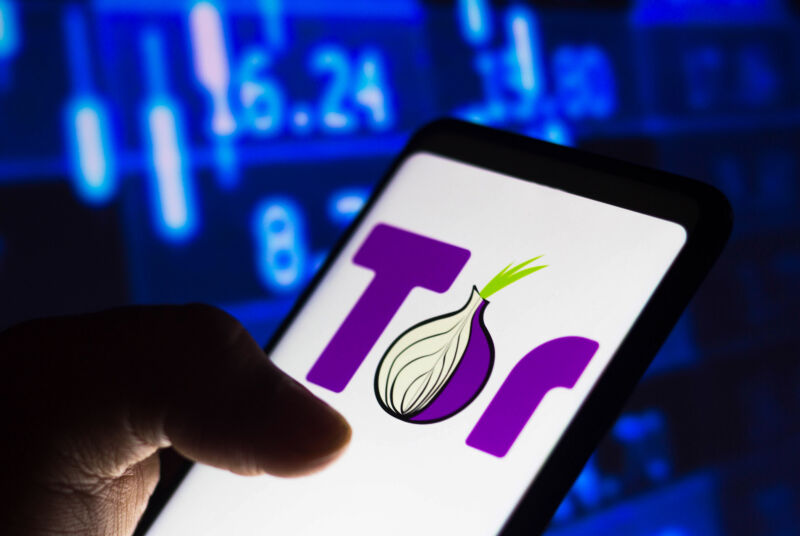How Tor is fighting—and beating—Russian censorship
[ad_1]

For years, the anonymity service Tor has been the most effective way to remain private on line and dodge web censorship. Considerably to the ire of governments and legislation enforcement agencies, Tor encrypts your world wide web targeted traffic and sends it by means of a chain of computers, building it really really hard for folks to observe you on line. Authoritarian governments see it as a distinct threat to their longevity, and in modern months, Russia has stepped up its lengthy-term ambition to block Tor—although not without a fight.
In December 2021, Russia’s media regulator, Roskomnadzor, enacted a 4-calendar year-previous court docket get that permits it to order World wide web provider providers (ISPs) to block the Tor Venture site, exactly where the Tor Browser can be downloaded, and prohibit accessibility to its products and services. Considering that then, censors have been locked in a battle with Tor’s complex workforce and buyers in Russia, who are pushing to retain the Tor network on the web and enable individuals to accessibility the uncensored web, which is if not greatly limited in the place.

Russia’s attempts to block Tor occur in two flavors: the technical and the political. So significantly, Tor has had some good results on the two fronts. It has uncovered methods to stay away from Russian blocking initiatives, and this month, it was taken out from Russia’s list of blocked sites adhering to a legal challenge. (Though this doesn’t imply blocking endeavours will promptly stop.)
“We are being attacked by the Russian government, they are trying to block Tor,” states Gustavo Gus, local community team lead of the Tor Undertaking. The past number of months have seen Russian officers adapt their ways, Gus suggests, while the Tor Project’s anti-censorship engineers have correctly introduced updates to quit its expert services from currently being blocked. “The combat is not in excess of,” Gus suggests. “People can join to Tor. People today can very easily bypass censorship.”
In Russia, the Web infrastructure is somewhat decentralized: ISPs can obtain blocking orders from Roskomnadzor, but it is up to particular person businesses to apply them. (China is the only state to have effectively blocked Tor, which was achievable because of to extra centralized Net regulate). While Russian authorities have been putting in new devices that employs deep packet inspection to check and block on line solutions, the efficiency of these blocks is mixed.
“The censorship that’s taking place in Russia is not regular and uniform,” Gus states. Gus points out that simply because of various ISPs, Tor may well be blocked for some people but not other individuals, even people in the exact same city. The two Tor’s metrics and exterior investigation appear to demonstrate the dwindling performance of Russian censorship.
Tor’s details shows that due to the fact the stop of 2021 there has been a massive fall in the range of folks immediately connecting to Tor in Russia. Having said that, people are equipped to connect to its services using volunteer-operate bridges—entry factors to the network that can’t effortlessly be blocked, as their information aren’t public—and Tor’s anti-censorship tool Snowflake. External information from the Net monitoring group Open up Observatory of Network Interference exhibits a large rise in men and women in Russia accessing Tor employing Snowflake.
Since the get started of Russia’s war with Ukraine in February, Russian officials have released a slurry of new legislation to regulate the Net and have clamped down on civil culture groups. Natalia Krapiva, tech authorized counsel at NGO Entry Now, claims Russia blocking Tor is part of larger sized initiatives to regulate people’s access to facts, these as the Kremlin’s VPN clampdown. “Russia is making an attempt to eliminate any doable resources of truthful substitute information about the war and about what is heading on in Russia internally,” Krapiva claims. This feeds into a “chilling influence,” where by folks alter their conduct or self-censor. “Certain measures, even if they really don’t right block or censor, build this worry of retaliation and dread of effects coming afterwards on.”
There have been two important incidents towards Tor’s Snowflake, Gus suggests. The 1st, in December, was preset within just 10 days. The 2nd, in May of this calendar year, was also patched shortly immediately after it was found. “They were blocking Snowflake in diverse means,” Gus claims. These attacks against Snowflake often involve fingerprinting, which utilizes compact specifics about browsers and Web connections to test to uniquely identify the technologies that a person is employing. For occasion, the selection of situations a browser connects with an exterior source may perhaps make it stand out from other browsers. If Snowflake can be recognized, it is a lot easier to block.
[ad_2]
Resource backlink







